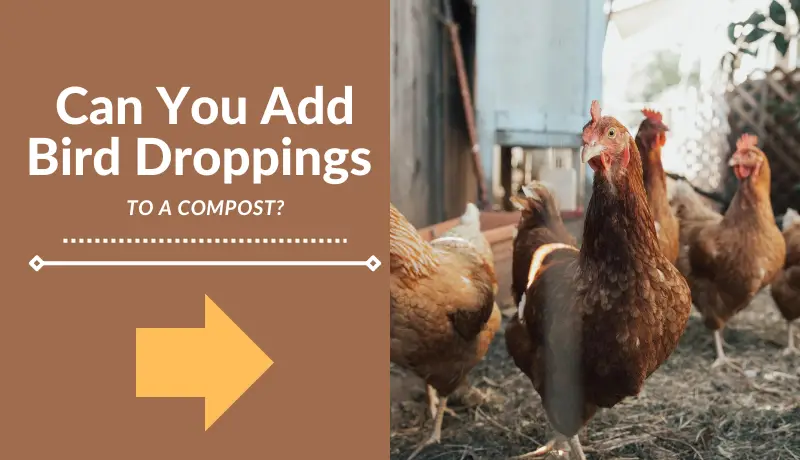When it comes to composting, not all materials are created equal. One of the most common questions people have is whether bird droppings can be added to a compost pile. The answer is yes – but there are some important considerations you should keep in mind before adding them! In this blog post, we’ll discuss what you need to know about using bird droppings as fertilizer in your compost pile and how best to use them safely and effectively.
How are Bird Droppings Beneficial to Plants?
droppings are an excellent source of nitrogen, phosphorus and potassium – three essential nutrients that plants need to grow healthy and strong. The droppings also contain beneficial bacteria and fungi which can help break down organic matter more quickly in the compost pile.
In addition, bird droppings provide a number of micronutrients that are often lacking in synthetic fertilizers, such as calcium, magnesium and zinc. These minerals can be extremely beneficial for plant growth.
Finally, bird droppings can act as a natural pest repellent due to their unpleasant smell!
Safety Precautions When Using Bird Droppings
While bird droppings are a great addition to the compost pile, it is important to take precautions when using them. Birds carry a number of diseases and parasites that could potentially be passed on through their droppings, so you should always wear gloves and a face mask while handling the material.
How to Compost Bird Droppings
First, make sure you collect the bird droppings along with any bedding such as sawdust or dry leaves, then mix this into your compost bin. This includes newspaper too – although it may be best to tear it into smaller pieces first.
Secondly, you need to get the balance right between the nitrogen-rich bird droppings and “brown” materials like straw or sawdust at a rate of approximately one part bird droppings to four or five parts brown material. The mix should be about as wet as a wrung-out sponge; if it’s too dry your decomposition process will take longer but be careful it’s not too wet, as it could start smelling!
The main takeaway when it comes to comporting bird droppings is understanding the nutrient content they bring – but also being mindful of how they can affect the other contents of your compost pile if not used correctly. With that said, there are plenty of benefits associated with using them which makes them an excellent addition to any garden or allotment. So go ahead and give them a try – just remember all these considerations first!

David, the founder of The Garden Fixer, started with a passion for gardening in 2012. He has continued his passion for gardening and desire to improve his skills and wanted to share his journey and helpful knowledge with other like-minded individuals.
He launched The Garden Fixer as an outlet for those interested in learning more about Gardening in hopes they can take what they learn and apply it for themselves!
